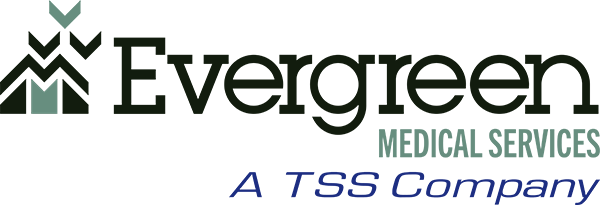
Organizations that work with medical gas systems must ensure that their employees are aware of and trained regarding the special precautions involving patient gas, vacuum, waste and anesthetic gas disposal (WAGD), and medical support gas systems, according to the National Fire Protection Association’s (NFPA) codes.
Since first opening our doors for business back in 1997, Evergreen Medical Services has been assisting our industry partners in adhering to the NFPA’s codes. They rely on our expertise when it comes to NFPA 99. Section 5.1.14.3 of the 2021 Edition NFPA 99 outlines these special precautions for those employees that operate, manage, and maintain these systems.
About the NFPA 99 Code
Essentially, the NFPA 99 code covers risk-based criteria for health care systems in terms of managing risk to visitors, staff and patients with an eye toward reducing dangers from electricity, explosions and fire when working with medical gas.
Unfortunately, many businesses overlook the NFPA’s critical precautions.
It’s crucial that you and your colleagues know how to interpret the NFPA 99 code, and that you are cognizant of what the code means for medical facilities to operate safely and according to industry best practices.
Special precautions to keep top of mind about NFPA 99 2021 Edition, Section 5.1.14.3 include:
- Piping systems shall not be used for the distribution of flammable anesthetics or used as a grounding electrode.
- Liquid or debris shall not be introduced into the medical vacuum or WAGD systems for disposal.
- The medical-surgical vacuum and WAGD systems shall not be used for non-medical applications.
- Clinical spaces converted to non-clinical spaces require that medical gas outlets and inlets not accessible for maintenance and testing be removed or decommissioned.
Interpreting the NFPA 99 Code
When working with NFPA 99 medical gas, you and your team will need to be trained in interpreting the NFPA 99 code and what it means for your medical facilities.
The NFPA 99 code applies to most areas in the United States, and health care facilities around the world use the code today. Typically, you will have one or more people serving as your Responsible Facility Authority or RFA to understand and implement the requirements for NFPA 99 adherence.
Keep in mind that the way professionals interpret the NFPA 99 code may differ between the design process and later during the inspection process, which is why we recommend you conduct a review of the system prior to construction. Doing so helps make sure all participants will be on the same page with everyone aligned toward “safety first” principles.
Need Assistance With Medical Gas and the NFPA 99 Code?
The last thing you’d want is for your company to fall out of compliance with the NFPA 99 code since adhering to regulations is of the utmost importance for patient safety as well as the health and well-being of your staff and visitors. Members of your team may very well need some assistance in interpreting the code for NFPA 99 medical gas.
At Evergreen Medical Services, we offer a full range of services for medical gas systems with courses in installing, inspecting and maintaining these systems so companies can remain in compliance with the NFPA 99 code.
If you have questions or concerns about NFPA 99 medical gas code requirements, get in touch with us today.
